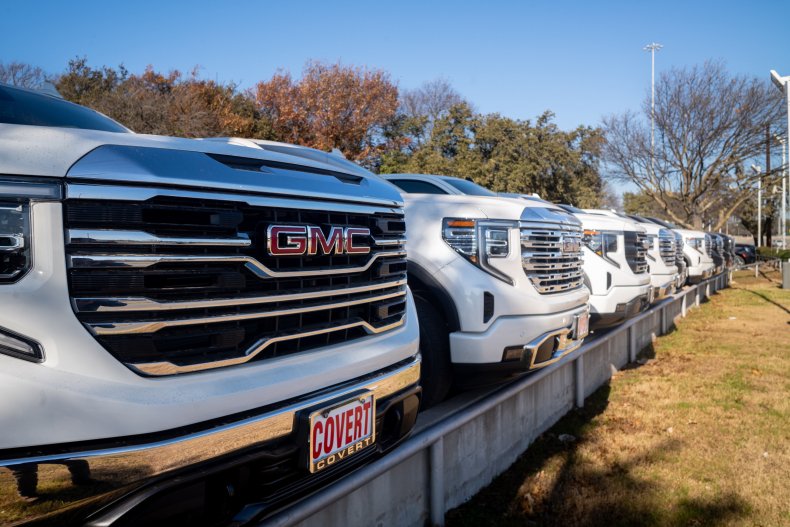Electric cars alone won't save us from climate change.
With heatwaves hammering people from California to Maine and around the globe, Vermont facing disastrous flooding, and massive wildfires cloaking the northern U.S. in smoke, President Biden was right to call climate change "the existential threat to humanity."
But for all its peril, this blistering summer also gives the president a key chance to turn down the heat by strengthening draft standards on cars, SUVs and pickups and their climate-heating carbon pollution.
Transportation is the largest source of U.S. climate pollution, and cars, SUVs and pickups represent the bulk of that. Scientists warn that cars on the road in 2050 need to emit virtually no carbon to avoid the worst climate disasters.

That's why we need strong emissions standards on the bulk of the cars that are still manufactured and put on the road every year, those with internal combustion engines.
The Environmental Protection Agency has taken a partial step with a proposed rule that could boost zero-emission vehicle sales to 67 percent in 2032. Unfortunately the EPA failed to demand any improvements for the tens of millions of new gas guzzlers that make up 93 percent of current sales and will continue to command substantial sales through 2032.
The administration should fix that and strengthen the rule before it's finalized in the coming months.
Strong auto rules do more than protect our climate. Combined with purchase incentives to drive electric vehicle sales, these standards cut air pollution, save gas, and help us win our share of the EV market and related jobs. And strengthened protections mean less drilling and less reliance on oil from untrustworthy "oiligarchies."
These measures also save billions at the pump since they encourage automakers to use cost-effective technologies to slash gas consumption and reduce emissions. EV owners will save $6,000 to $12,000 over the life of the vehicle.
Yet instead of improving efficiency, automakers continue to manufacture giant gas guzzlers, many of which haul little more than lattes home from Starbucks.
These heavy, inefficient SUVs and pickups will be polluting our neighborhoods and damaging our climate well into the middle of the century. GM recently killed off its affordable Bolt sedan while investing $2.3 billion to keep making SUVs into the 2030s because they generate huge profits.
The automakers whine that they can't walk and chew gum—improve gas-powered vehicles and make EVs—at the same time. Why? Because they want to continue to reap the fat profits from SUVs and pickups.
But the technology to cut pollution from gas vehicles today is cheap and widely available. This is auto mechanics, not rocket science.
Components such as improved engines and transmissions, hybrid systems, and high-strength, lightweight materials, are sitting on automakers' shelves and cheaper than the gas they save. Yet without strong federal standards pushing them to do better, most car companies will continue to leave them on the shelves.
According to the International Council on Clean Transportation, the EPA should require at least a 3.5 percent improvement per year in emissions from gas cars and trucks. The modest emissions rule under President Obama required 5 percent improvement per year. The EPA's new proposed rule requires nothing.
The draft EPA rule also fails to fix the "truckification" of the vehicle fleets, including EVs.
Carmakers are replacing sedans with huge electric SUVs and pickups. They may not run on gas, but these new EVs can still be energy hogs and commit us to running power plants more and using more minerals than EV sedans, which are lighter, more efficient and need smaller batteries.
Earth may have just experienced the hottest week ever. Fears of the hottest year on record are challenging our leaders to act strongly to prevent cascading devastation from an overheated planet. Now is the time for auto rules that attack every aspect of the problem.
The president must act boldly to slash our need for oil and gas. During this scorching summer, Biden must strengthen the EPA's rule to take the biggest single step of any nation to cut the carbon pollution cooking our planet.
Dan Becker is director of the Center for Biological Diversity's Safe Climate Transport Campaign. Maya Golden-Krasner is the deputy director of the Center's Climate Law Institute.
The views expressed in this article are the writers' own.








